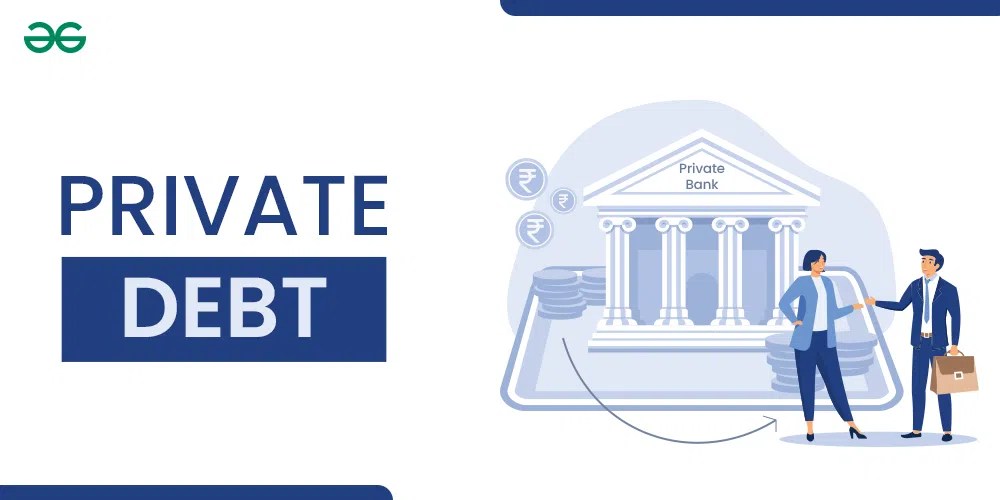Private Equity CRM Software: 7 Ultimate Power Tools for 2024
In the fast-moving world of private equity, staying ahead means leveraging smart technology. Enter private equity CRM software—your ultimate weapon for managing investor relationships, streamlining deal flow, and boosting operational efficiency. Let’s dive into why this tool is no longer optional, but essential.
What Is Private Equity CRM Software?

Private equity CRM software is a specialized customer relationship management system designed to meet the unique demands of private equity firms. Unlike generic CRMs used in sales or marketing, these platforms are built to handle complex investor relations, fundraising cycles, portfolio tracking, and compliance-heavy workflows.
Core Definition and Purpose
At its heart, private equity CRM software centralizes all stakeholder interactions—limited partners (LPs), general partners (GPs), advisors, and portfolio companies—into one secure, searchable platform. It’s not just about contact management; it’s about orchestrating relationships that drive capital formation and deal success.
- Tracks investor communication history and preferences
- Manages fundraising pipelines with stage-based workflows
- Integrates with back-office systems like fund accounting and compliance tools
“A CRM in private equity isn’t just a database—it’s the nervous system of your firm’s investor engagement strategy.” — Venture Capital Journal, 2023
How It Differs from Traditional CRM Systems
Standard CRM platforms like Salesforce or HubSpot are built for B2C or B2B sales funnels. They track leads, opportunities, and customer service tickets. But private equity CRM software goes deeper, offering features tailored to long-term capital relationships and regulatory complexity.
- Longer sales cycles: Fundraising can take 12–24 months; CRMs must support multi-year tracking.
- Confidentiality: Data sensitivity is extreme; access controls and audit trails are non-negotiable.
- Compliance integration: Must align with SEC, FINRA, and GDPR requirements for investor communications.
Why Private Equity Firms Need Specialized CRM Software
As competition for capital intensifies, firms can’t rely on spreadsheets and email chains. The need for private equity CRM software has shifted from a luxury to a strategic imperative. Let’s explore the driving forces behind this transformation.
Managing Complex Investor Relationships
Private equity firms juggle hundreds of LPs—pension funds, endowments, family offices, and high-net-worth individuals. Each has unique investment criteria, communication preferences, and reporting expectations. A CRM consolidates all this data into unified investor profiles.
- Logs every interaction: calls, emails, meetings, event attendance
- Tags investors by geography, sector interest, commitment size
- Automates follow-ups based on engagement level
This level of detail ensures no investor falls through the cracks during a fundraising campaign.
Streamlining Fundraising Operations
Fundraising is the lifeblood of any PE firm. Private equity CRM software transforms this process from chaotic to systematic. It enables teams to map out the entire fundraising journey—from initial outreach to final close—with measurable milestones.
- Visual pipeline dashboards show where each LP stands in the funnel
- Automated task reminders keep teams accountable
- Document tracking ensures NDAs, PPMs, and subscription agreements are properly managed
According to a 2023 Preqin report, firms using CRM tools closed funds 30% faster than those relying on manual processes.
Top 7 Features of Effective Private Equity CRM Software
Not all CRMs are created equal. The best private equity CRM software combines robust functionality with intuitive design. Here are the seven must-have features that separate the leaders from the laggards.
Investor Pipeline Management
This is the backbone of any private equity CRM. A dynamic pipeline view allows firms to track LPs across stages: prospecting, qualification, due diligence, commitment, and closing.
- Drag-and-drop interfaces for easy stage progression
- Customizable fields for LP type, target allocation, and decision-maker details
- Real-time forecasting of expected capital inflows
Platforms like Preqin and Affinity offer advanced pipeline analytics that predict closing probabilities based on engagement history.
Document & NDA Management
Private equity deals involve sensitive documents—confidential information memorandums (CIMs), limited partnership agreements (LPAs), and non-disclosure agreements (NDAs). A top-tier CRM includes secure document sharing with tracking and e-signature capabilities.
- Watermarking and expiration dates on shared files
- Read receipts and download tracking
- Integration with DocuSign or Adobe Sign for digital signatures
This reduces leakage risk and ensures compliance with data protection laws.
Reporting and Analytics Dashboard
Leadership needs real-time insights. The best private equity CRM software offers customizable dashboards showing KPIs like:
- Number of new LPs contacted per week
- Conversion rates by stage
- Geographic distribution of investor interest
- Team performance metrics
These dashboards often integrate with BI tools like Tableau or Power BI for deeper analysis.
Leading Private Equity CRM Software Platforms in 2024
The market for private equity CRM software has exploded in recent years. While some firms build custom solutions, most opt for specialized vendors. Here’s a breakdown of the top players shaping the industry.
Affinity: Relationship Intelligence Powerhouse
Affinity stands out for its AI-driven relationship mapping. It integrates with Gmail, Outlook, and LinkedIn to automatically log interactions and suggest warm introductions.
- Uses machine learning to rank investor engagement levels
- Identifies hidden connections within your network
- Strong integration with Salesforce and Google Workspace
Affinity is particularly popular among growth equity and venture capital firms but is increasingly adopted by mid-market PE players. Learn more at affinity.co.
Preqin Pro: Data-Driven Investor Targeting
Preqin isn’t just a CRM—it’s a full ecosystem for private markets. Its CRM module sits within a broader platform offering market data, benchmarking, and fundraising intelligence.
- Access to over 250,000 investor profiles with contact details
- Filters by asset class, region, fund size, and investment history
- Tracks investor commitments across multiple funds
Preqin is ideal for firms conducting global fundraising campaigns. Visit preqin.com for a demo.
FundCount: Integrated Back-to-Front Office Solution
FundCount offers a unified platform covering CRM, fund accounting, compliance, and investor reporting. This makes it a favorite among smaller and mid-sized PE firms looking to consolidate systems.
- Single database for investor data, capital calls, and distributions
- Automated investor statement generation
- Regulatory reporting templates for SEC and IRS filings
Its CRM module may not be as sleek as standalone tools, but its integration depth is unmatched. Explore at fundcount.com.
How to Choose the Right Private Equity CRM Software
Selecting the right private equity CRM software isn’t just about features—it’s about fit. A tool that works for a $10B buyout firm may overwhelm a boutique fund. Here’s a step-by-step guide to making the right choice.
Assess Your Firm’s Size and Needs
Start by evaluating your firm’s scale and complexity:
- Micro-funds (under $100M AUM): May benefit from lightweight, affordable tools like HubSpot (customized) or Affinity.
- Mid-market firms ($100M–$1B AUM): Need robust CRMs with pipeline tracking and document management—Preqin or DealCloud are strong options.
- Large institutions (>$1B AUM): Often require enterprise-grade solutions with custom development, integration, and security—think Salesforce with PE-specific add-ons or bespoke platforms.
Evaluate Integration Capabilities
Your CRM shouldn’t exist in a silo. It must connect seamlessly with:
- Fund accounting software (e.g., Advent Axys, SimCorp)
- Document management systems (e.g., iManage, NetDocuments)
- Email and calendar platforms (Gmail, Outlook, Microsoft 365)
- Compliance and KYC tools (e.g., ComplyAdvantage, Refinitiv)
API availability and pre-built connectors are critical. Ask vendors for integration case studies before committing.
Security and Compliance Requirements
Private equity deals with highly sensitive data. Your CRM must meet strict security standards:
- End-to-end encryption (at rest and in transit)
- Role-based access controls (RBAC)
- Regular third-party security audits (SOC 2, ISO 27001)
- Data residency options (e.g., EU-only storage for GDPR compliance)
Ensure the vendor provides a detailed security whitepaper and supports your firm’s internal audit processes.
Implementation Best Practices for Private Equity CRM Software
Even the best private equity CRM software will fail without proper implementation. Many firms make the mistake of treating it as an IT project rather than an operational transformation.
Build a Cross-Functional Implementation Team
Success requires input from multiple departments:
- Investor Relations: Define communication workflows and reporting needs
- Deal Team: Map out pipeline stages and due diligence checklists
- Compliance: Set access rules and audit trail requirements
- IT: Handle integration, data migration, and user provisioning
This team should meet weekly during rollout and own the change management process.
Data Migration and Cleansing
Garbage in, garbage out. Before importing data, conduct a full audit of existing investor lists, email archives, and spreadsheets.
- Deduplicate LP records (e.g., “BlackRock” vs. “Blackrock Inc.”)
- Standardize naming conventions and contact fields
- Verify email addresses and phone numbers
Use tools like OpenRefine or Talend for large-scale data cleansing. Migrate in phases—start with active investors, then historical ones.
Training and User Adoption Strategies
Adoption is the biggest hurdle. Even powerful private equity CRM software fails if teams don’t use it consistently.
- Run hands-on workshops, not just webinars
- Appoint “CRM champions” in each team to provide peer support
- Link CRM usage to performance reviews (e.g., “All investor meetings must be logged within 24 hours”)
Track login rates and data entry completeness weekly for the first three months.
Future Trends in Private Equity CRM Software
The private equity CRM software landscape is evolving rapidly. AI, automation, and deeper data integration are reshaping what’s possible. Here’s what to expect in the coming years.
AI-Powered Investor Matching
Next-gen CRMs will use artificial intelligence to recommend ideal LP targets based on historical fundraising success, network proximity, and behavioral signals.
- AI analyzes past commitments to predict which investors are most likely to allocate to your next fund
- Natural language processing (NLP) scans emails and call transcripts for sentiment and intent
- Automated outreach suggestions (e.g., “Follow up with LP X—they attended your webinar”)
Platforms like Affinity are already deploying these features, giving early adopters a competitive edge.
Integration with Alternative Data Sources
Firms are increasingly using non-traditional data to inform fundraising. CRMs will soon integrate with:
- Social media activity (LinkedIn engagement, event check-ins)
- Web analytics (time spent on your investor portal)
- Third-party ESG scoring platforms
This creates a 360-degree view of investor behavior, enabling hyper-personalized outreach.
Blockchain for Investor Onboarding
While still emerging, blockchain technology could revolutionize KYC and AML processes. Imagine a self-sovereign identity system where LPs verify their credentials once and reuse them across multiple PE firms.
- Reduces redundant paperwork
- Speeds up onboarding from weeks to days
- Enhances data accuracy and auditability
Pilot programs are underway, and private equity CRM software vendors are watching closely.
Measuring the ROI of Private Equity CRM Software
Investing in private equity CRM software isn’t cheap. Annual licenses can range from $10,000 to over $100,000. So how do you prove it’s worth it?
Quantitative Metrics to Track
Use these KPIs to measure success:
- Fundraising cycle time: Reduction in days from first contact to capital close
- Investor conversion rate: Percentage of prospects who commit
- Team productivity: Number of investor meetings logged per rep per week
- Data accuracy: Reduction in duplicate or outdated records
A 2022 McKinsey study found that firms with mature CRM systems achieved 2.3x higher fundraising efficiency than peers.
Qualitative Benefits
Some ROI is harder to quantify but equally valuable:
- Improved investor experience (timely responses, personalized updates)
- Stronger internal collaboration (shared investor context across teams)
- Enhanced brand reputation (professionalism in communications)
Conduct quarterly surveys with your team and LPs to gauge satisfaction.
Cost-Benefit Analysis Framework
Build a simple model:
- Costs: Software license, implementation, training, maintenance
- Benefits: Faster closes, higher capital raised, reduced admin burden
Example: If a CRM helps close a $200M fund 3 months earlier, and you can deploy capital at 15% annual return, that’s $7.5M in additional value creation—far outweighing a $50K software cost.
Common Challenges and How to Overcome Them
Even with the best private equity CRM software, firms face obstacles. Awareness and preparation are key to avoiding pitfalls.
Resistance to Change
Partners and senior team members often resist logging activities or changing workflows. Combat this by:
- Starting with a pilot group (e.g., IR team)
- Showing quick wins (e.g., “We closed LP X 2 weeks faster thanks to CRM alerts”)
- Leadership setting the example (CEO logs every meeting)
Data Silos and Fragmented Systems
Many firms have investor data scattered across Excel, email, and legacy systems. Break down silos by:
- Appointing a data steward
- Establishing a single source of truth
- Enforcing data entry policies
Integration middleware like MuleSoft or Zapier can help bridge gaps.
Over-Customization and Complexity
While customization is tempting, too much can lead to bloated, hard-to-maintain systems. Stick to:
- Core functionality that serves 80% of use cases
- Vendor-supported configurations over custom code
- Regular reviews to remove unused fields or workflows
What is private equity CRM software?
Private equity CRM software is a specialized platform designed to manage investor relationships, fundraising pipelines, and compliance workflows for private equity firms. It centralizes LP data, tracks communications, and streamlines capital raising with tools tailored to the industry’s long cycles and high confidentiality.
How does private equity CRM software improve fundraising?
It improves fundraising by providing real-time pipeline visibility, automating follow-ups, managing NDAs and documents securely, and enabling data-driven targeting of likely investors. Firms using CRM tools report closing funds up to 30% faster.
Which CRM is best for small private equity firms?
For small firms, Affinity and FundCount offer strong value. Affinity excels in relationship mapping and ease of use, while FundCount provides integrated accounting and reporting. Both scale well as the firm grows.
Can CRM software integrate with fund accounting systems?
Yes, leading private equity CRM software platforms like FundCount, Preqin, and Salesforce (with PE-specific apps) offer integrations with fund accounting systems such as Advent Axys, SimCorp, and EaglePace. API access and pre-built connectors are key.
Is private equity CRM software secure?
Top-tier platforms prioritize security with end-to-end encryption, SOC 2 compliance, role-based access, and audit trails. Always review the vendor’s security certifications and ensure alignment with your firm’s compliance policies.
Private equity CRM software is no longer a back-office tool—it’s a strategic asset. From accelerating fundraising to deepening investor relationships, the right platform can transform how your firm operates. As the market evolves, embracing AI, automation, and seamless integration will separate the leaders from the laggards. The future of private equity isn’t just about deals—it’s about data, relationships, and the technology that connects them.
Recommended for you 👇
Further Reading:


